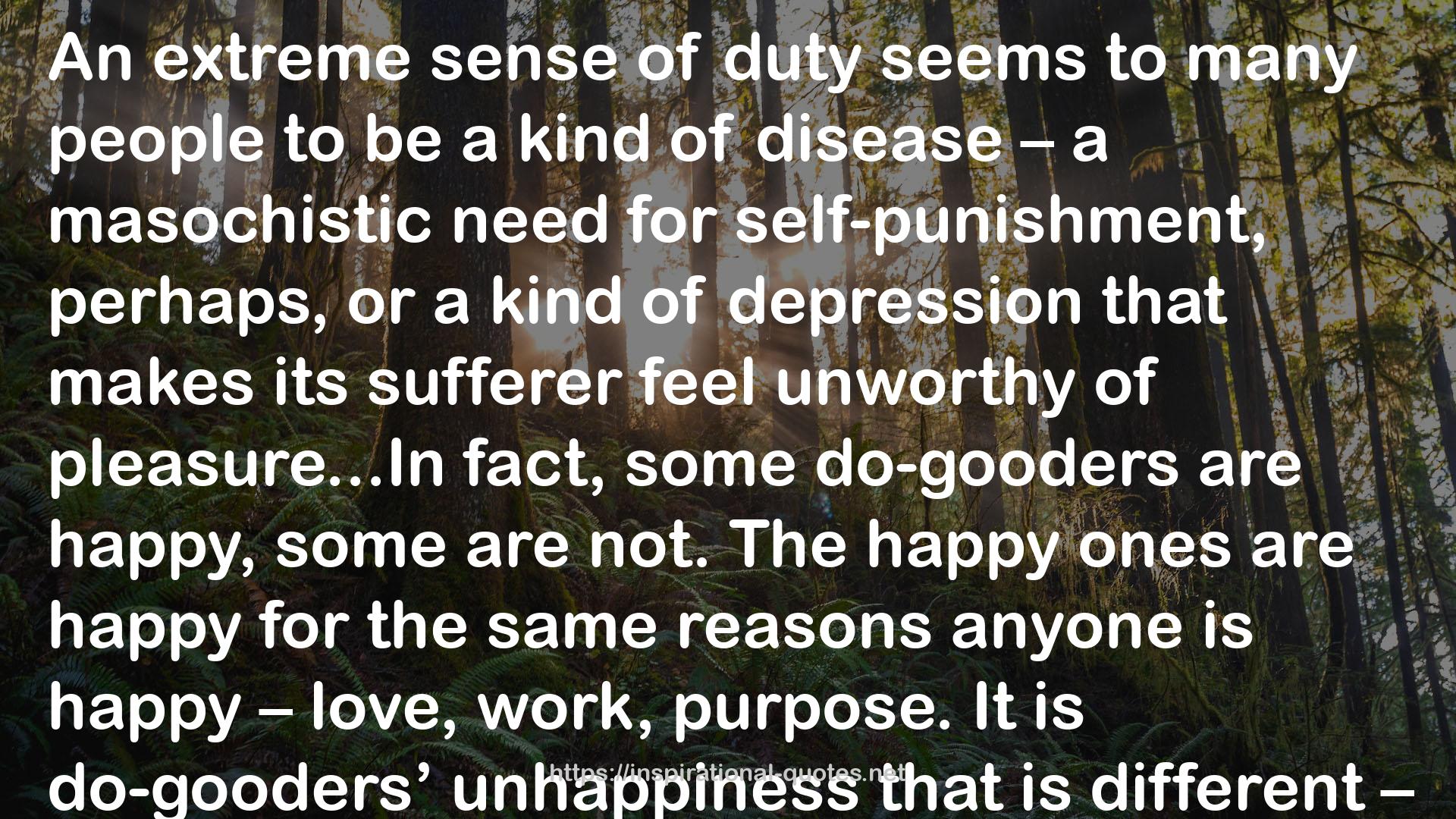" An extreme sense of duty seems to many people to be a kind of disease – a masochistic need for self-punishment, perhaps, or a kind of depression that makes its sufferer feel unworthy of pleasure...In fact, some do-gooders are happy, some are not. The happy ones are happy for the same reasons anyone is happy – love, work, purpose. It is do-gooders’ unhappiness that is different – a reaction not only to humiliation and lack of love and the other usual stuff, but also to knowing that the world is filled with misery, and that most people do not really notice or care, and that, try as they might, they cannot do much about either of those things. What do-gooders lack is not happiness but innocence. They lack that happy blindness that allows most people, most of the time, to shut their minds to what is unbearable. Do-gooders have forced themselves to know, and keep on knowing, that everything they do affects other people, and that sometimes (though not always) their joy is purchased with other people’s joy. And, remembering that, they open themselves to a sense of unlimited, crushing responsibility. "
― Larissa MacFarquhar , Strangers Drowning: Grappling with Impossible Idealism, Drastic Choices, and the Overpowering Urge to Help
